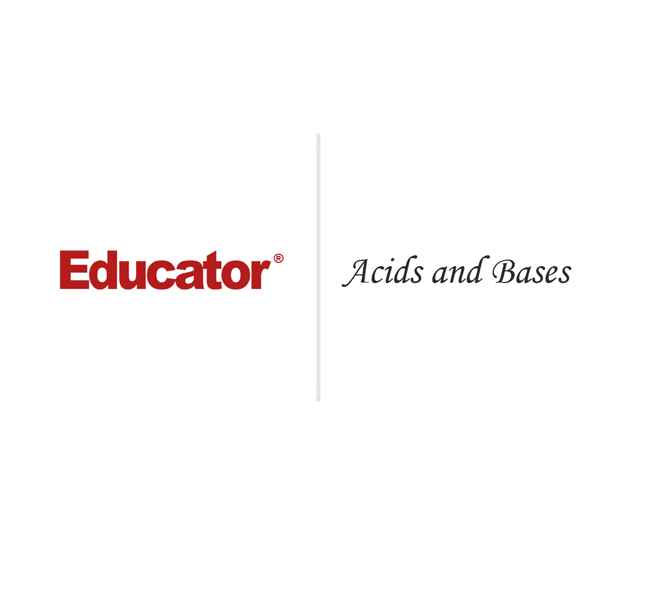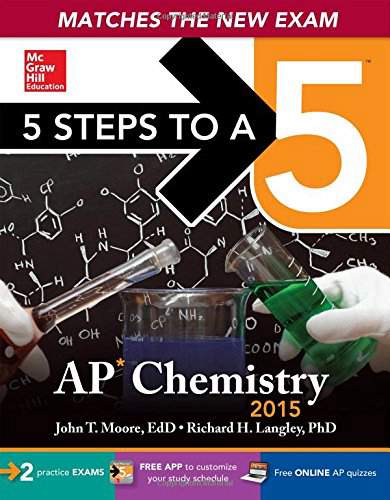Starting up...

For more information, please see full course syllabus of AP Chemistry
AP Chemistry Acids and Bases
The most common definition of acids and bases is based on the Bronsted-Lowry model. An acid is a compound that can donate an H⁺ ion, while a base can usually accept an H⁺ and/or donate an OH⁻ anion. Acid-base chemistry usually takes place in water. The hydrogen ion dissociates and can be picked up by the base or by a molecule of water, turning it from H₂O to H₃O⁺. The equilibrium constants for acids and bases are the Kₐ (dissociation constant) and Kb, respectively. Polyprotic acids can give up more than one hydrogen ion, and strong acids have high dissociation constants with weak conjugate bases. Water is amphoteric and can act as both an acid and a base and has several unique properties. pH is the log of the concentration of H⁺ ions and pKₐ is the log of the dissociation constant.
Share this knowledge with your friends!
Copy & Paste this embed code into your website’s HTML
Please ensure that your website editor is in text mode when you paste the code.(In Wordpress, the mode button is on the top right corner.)
- - Allow users to view the embedded video in full-size.










































 Answer Engine
Answer Engine




2 answers
Last reply by: David Gonzalez
Mon Jul 28, 2014 5:45 PM
Post by David Gonzalez on July 1, 2014
Hi, great lesson! You mentioned that hydrogen cations are dangerous (acidic) - but how come they don't cause damage in the body when released into the medium? Thank you!
2 answers
Last reply by: Tim Zhang
Sun Apr 6, 2014 6:19 PM
Post by Tim Zhang on April 3, 2014
I am a little confuesed about the equailibrium of the acid and base reation. For example, if the reaction has a stronger base on the left side, will the equilibirum favor the products? And, could you expain what will be produced when Oxygen ion mixed with water?
1 answer
Fri Apr 4, 2014 7:08 PM
Post by antoni szeglowski on April 1, 2014
Thank you so much Professor Hovasapian. Last exam I took in chemistry I scored a 90...the class average of about 1500 students taking the exam was around a 55.
This is all thanks to you Professor Hovasapian. I look forward to your physical chemistry lectures!
If only you taught all the courses on educator!
1 answer
Thu Dec 26, 2013 3:08 PM
Post by Burhan Akram on December 25, 2013
Hi Prof. Raffi,
Just wanted to say that you explain things VERY WELL and I deeply understand the material. Also, after watching your lessons, I started to imagin things in real world how they relate to Chemical reactions in chemistry; Very helpful. I might end up doing a minor in Chem along Math now :D
Thank You Again
Burhan
1 answer
Wed Sep 11, 2013 4:35 PM
Post by Stephanie Dahlström on September 11, 2013
I'm a little confused about the H3O+ - molecule. O is -2 and with two H+ attached to it, the shell should be completely full, which means that it has achieved noble gas structure, right? So why would H2O want to take another H+ to make it an ion?
1 answer
Sat Jul 6, 2013 6:41 PM
Post by KyungYeop Kim on July 5, 2013
Question: When you look at different compounds, how do you know which one is stronger or weaker Lewis acid or base?
For instance, BF3 and BCL3, how do I know which one's stronger? Also is it any different with Lewis bases?
1 answer
Wed Jun 19, 2013 10:03 PM
Post by Jeff Q on June 19, 2013
Hi Raffi. In example 4, when you gave the [OH-] in solution, you assumed that the solution was water. Is that an assumption we should usually make? That is, when a problem just says "solution" should we presume it is an aqueous solution?
1 answer
Wed Nov 28, 2012 1:43 PM
Post by Dustin Voelzke on November 27, 2012
I sit in my class like a deer in headlights thinking that i'll never understand chemistry. My professor is a smart man but cannot articulate this stuff as beautifully as you can. My grades have picked up ever since I started this and I have a new found interest in the subject matter. Sorry if this comment sounds like an as seen on TV ad. Just wanted to say thank you.
1 answer
Tue Nov 27, 2012 3:41 PM
Post by Kamiko Darrow on November 27, 2012
Hi Raffi,
Your Chemistry lectures are so helpful and easy to follow. I am enjoying your lessons a lot, and I wish you were teaching at Boston University!
1 answer
Sun Jul 29, 2012 8:08 PM
Post by kwasi agyeman on July 28, 2012
There is a white block in the middle of the lesson that will not go away. I cannot see.